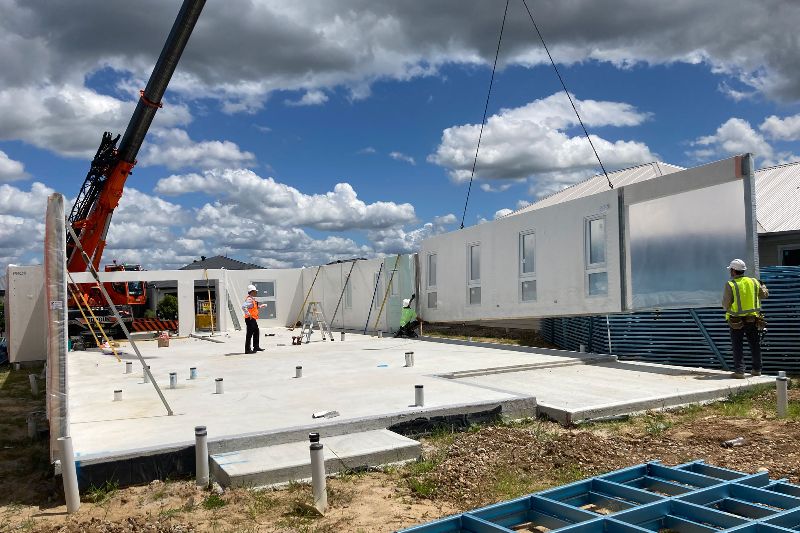In recent years, the healthcare industry has witnessed a profound transformation driven by innovative technologies and forward-thinking approaches. One of the most intriguing developments in this realm is the integration of modular houses into healthcare systems. These modular structures, once primarily associated with temporary housing or commercial spaces, are now reshaping the landscape of patient care. Let's delve into how modular houses are revolutionizing healthcare delivery:

Flexibility and Scalability
Modular houses offer unparalleled flexibility and scalability, making them an ideal solution for healthcare providers facing fluctuating demands. These structures can be quickly assembled, disassembled, or reconfigured to adapt to changing patient needs or evolving medical requirements. Whether it's establishing temporary clinics in remote areas or expanding existing healthcare facilities to accommodate growing populations, modular houses provide a versatile and cost-effective solution.
Rapid Deployment in Emergency Situations
During emergencies such as natural disasters or public health crises, rapid deployment of medical facilities is critical to providing timely care to affected populations. Modular houses excel in this regard, enabling healthcare organizations to set up emergency treatment centers or field hospitals within a fraction of the time required for traditional construction methods. Their modular design allows for swift assembly and customization, ensuring that essential medical services can be delivered promptly to those in need.
Enhanced Patient Experience
The design of healthcare environments significantly influences patient experience and outcomes. Modular houses offer a conducive environment for healing and recovery through thoughtful design elements and efficient use of space. From comfortable patient rooms to well-equipped treatment areas, these structures prioritize both functionality and comfort, fostering a healing atmosphere that promotes wellness and recovery.
Sustainability and Cost-Efficiency
In an era of increasing environmental awareness and resource constraints, sustainability has become a key consideration in healthcare infrastructure. Modular houses are inherently more sustainable than conventional construction methods, as they minimize waste, utilize eco-friendly materials, and optimize energy efficiency. Additionally, their modular nature reduces construction time and labor costs, making them a financially viable option for healthcare providers seeking to maximize resources without compromising quality of care.
Remote Healthcare Delivery
The rise of telemedicine and remote healthcare services has transformed the way patients access medical care. Modular houses play a pivotal role in supporting these initiatives by providing adaptable spaces for telehealth consultations, remote monitoring, and virtual care delivery. Whether deployed in rural communities with limited access to healthcare facilities or integrated into urban telemedicine networks, modular houses enable healthcare providers to extend their reach and deliver quality care to patients wherever they are.

Collaborative Care Models
Healthcare delivery is increasingly shifting towards collaborative care models that emphasize interdisciplinary collaboration and patient-centered approaches. Modular houses facilitate this paradigm shift by providing versatile spaces for multidisciplinary teams to collaborate, coordinate care, and engage with patients in a holistic manner. From integrated care hubs to community health centers, these structures serve as focal points for fostering collaboration and innovation in healthcare delivery.
No comments:
Post a Comment